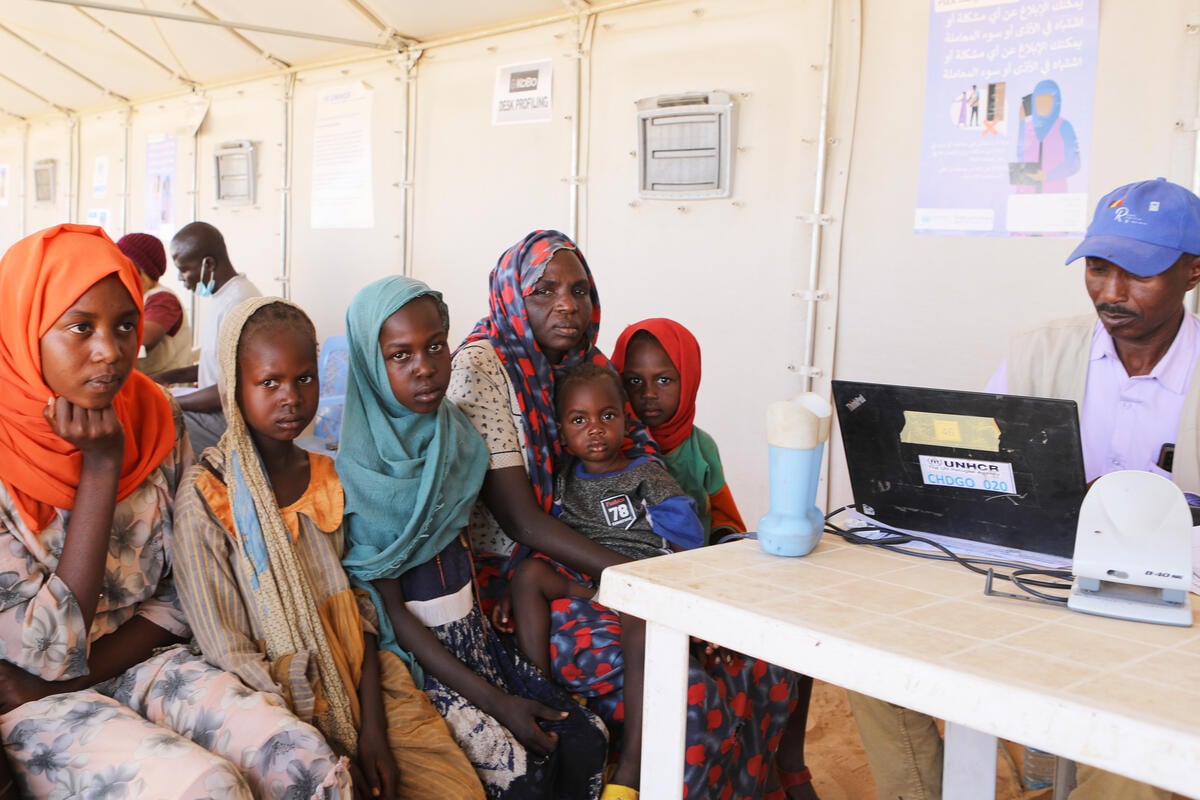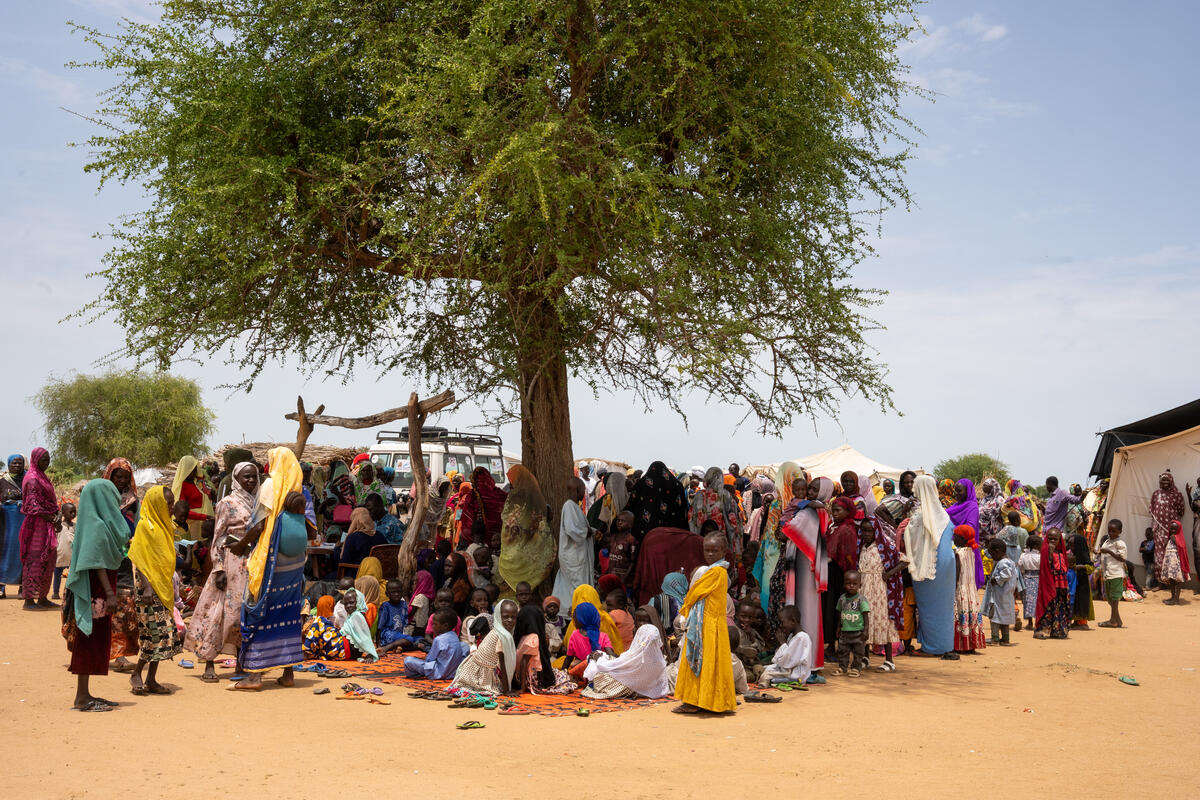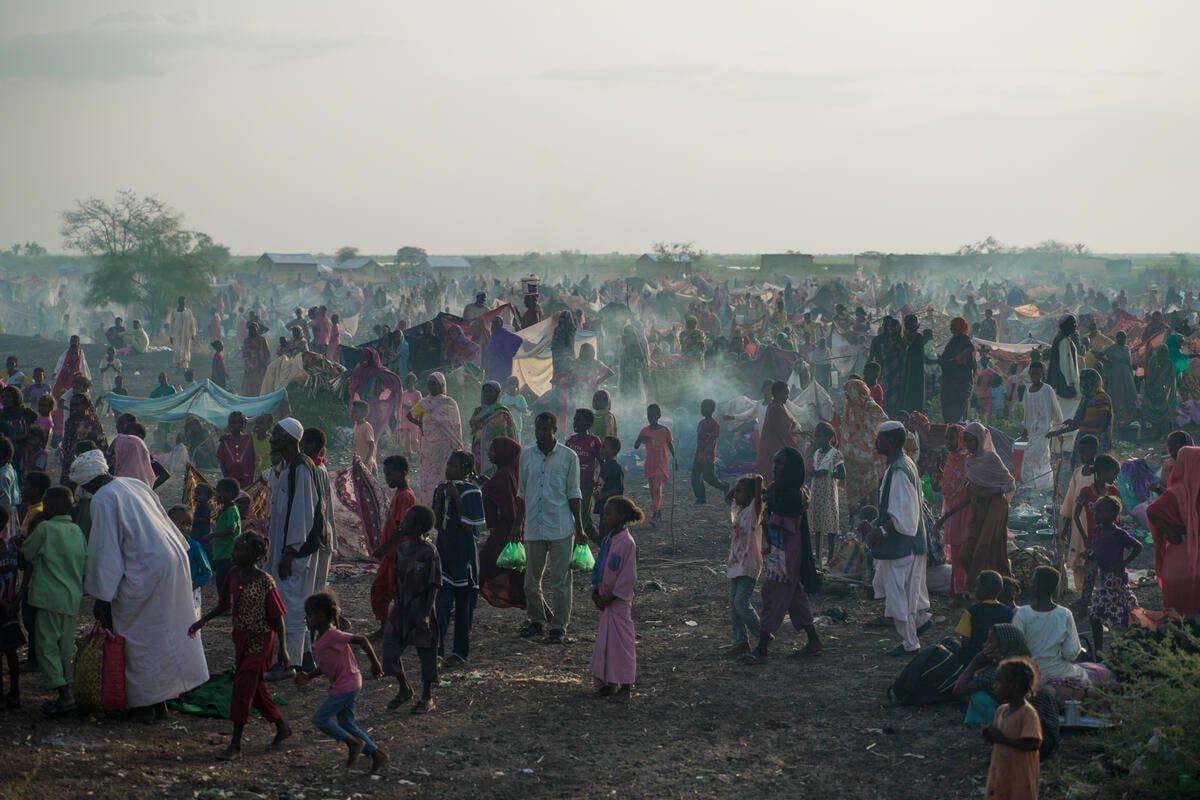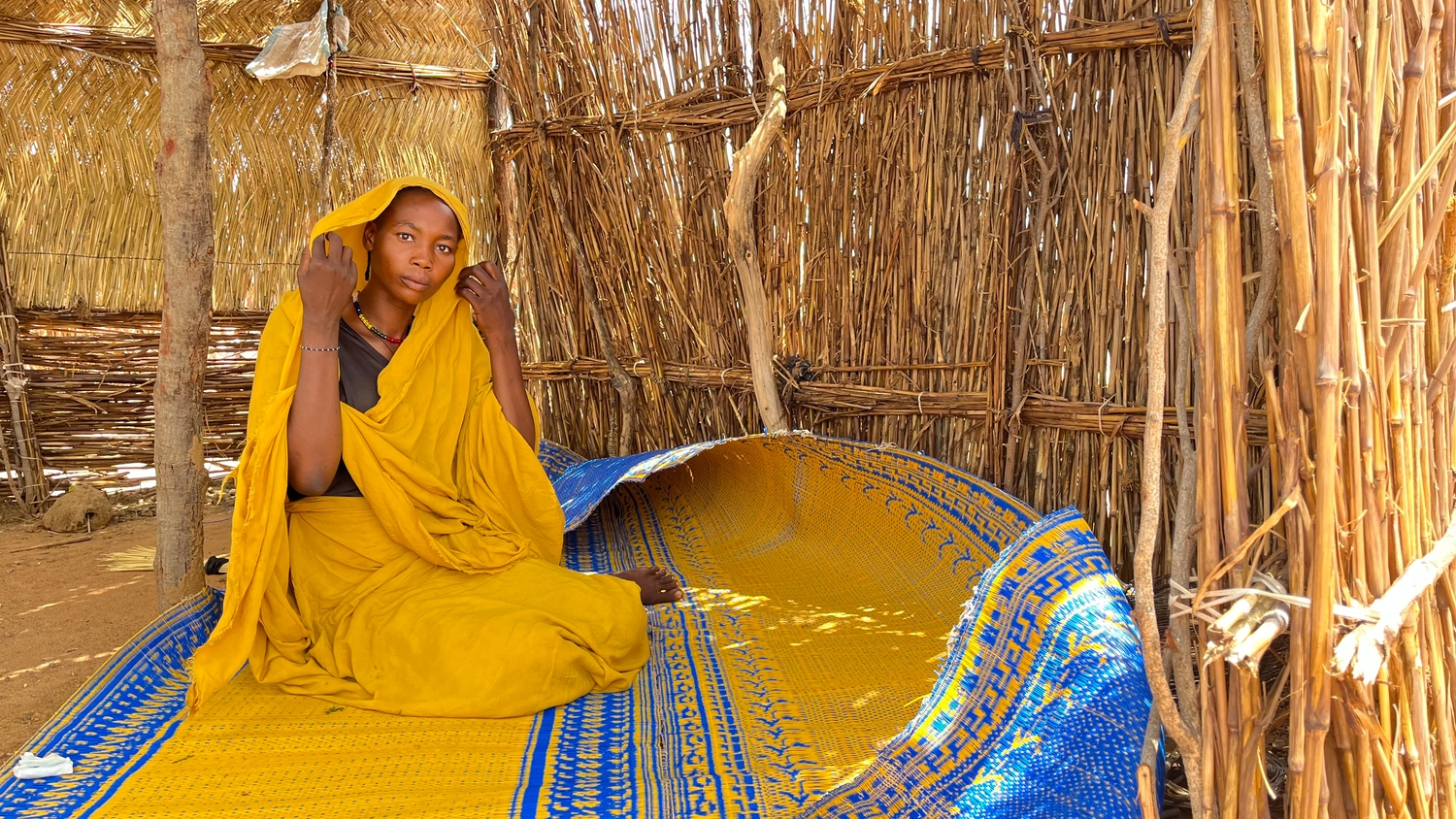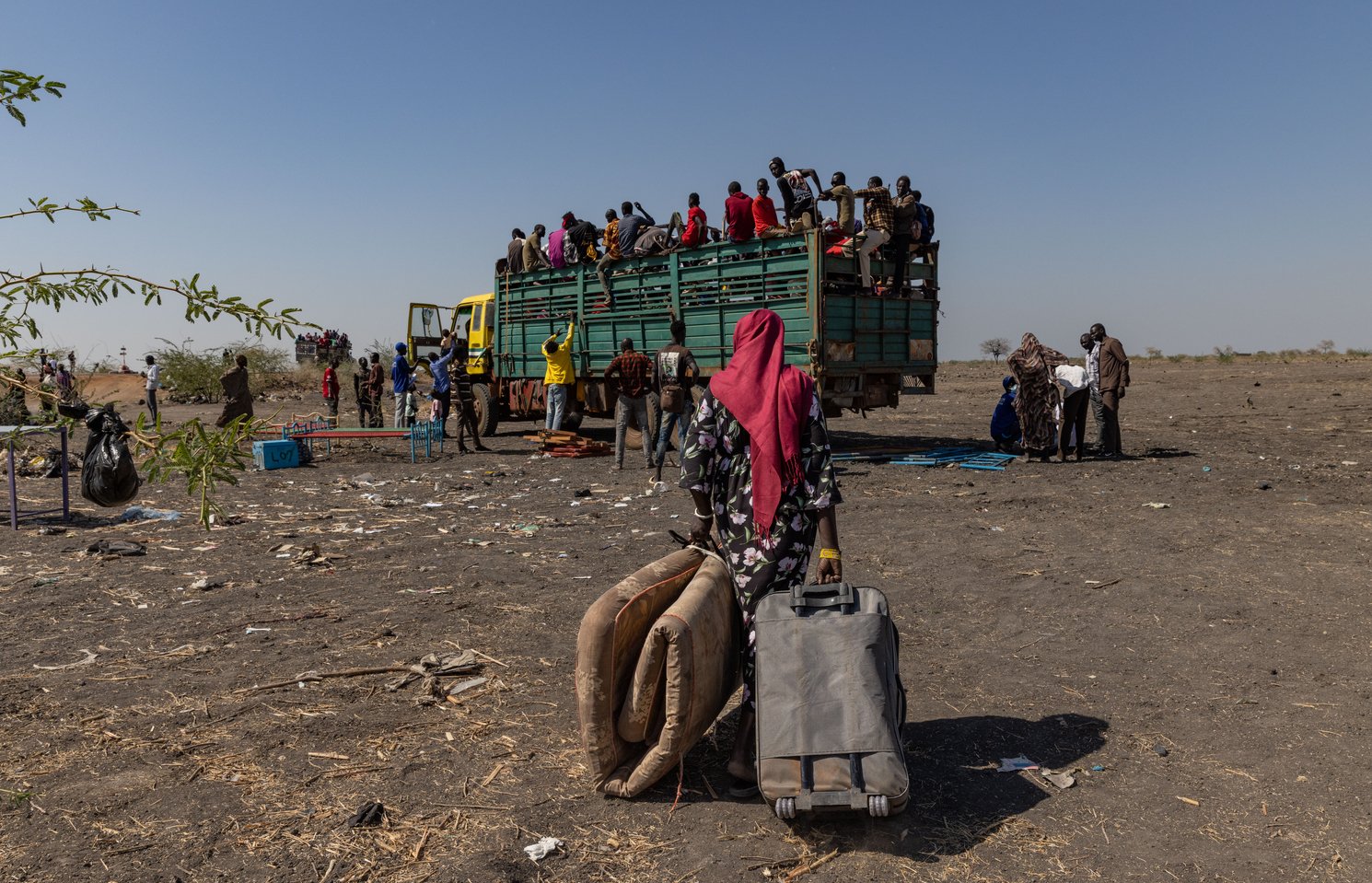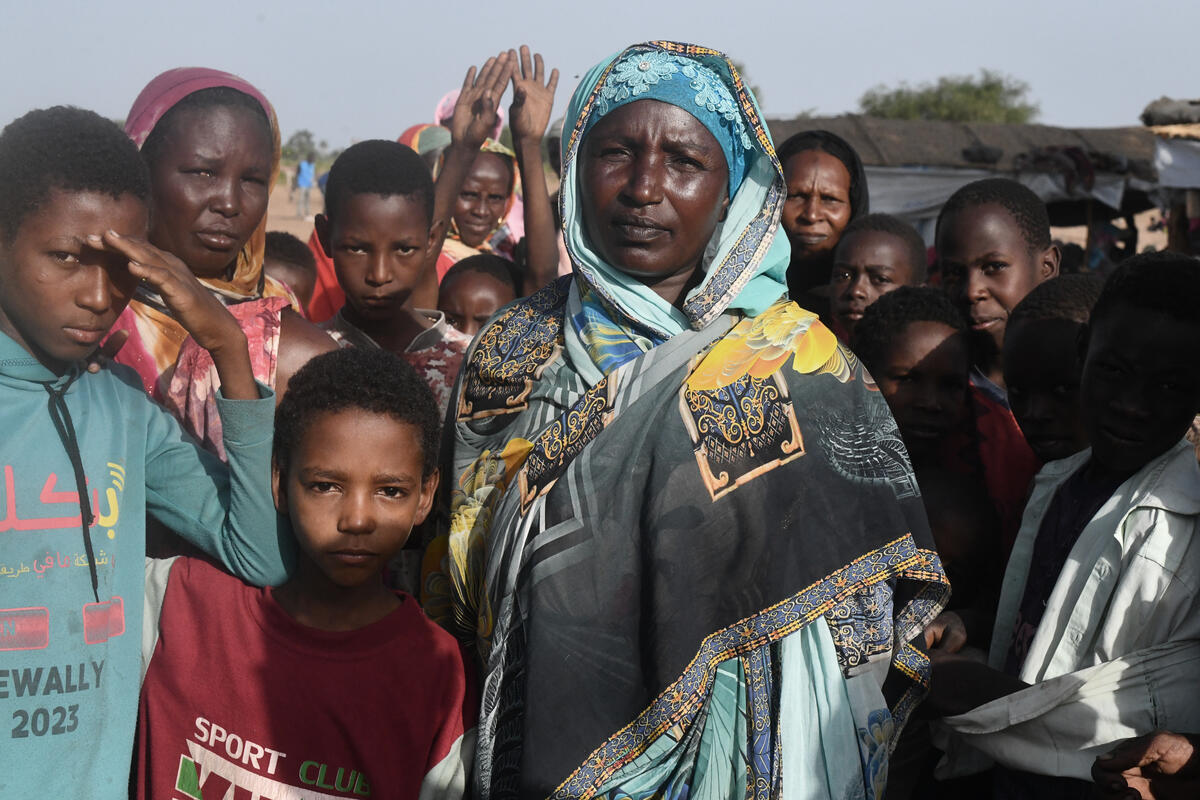Influx of Central African Republic refugees to eastern Chad
Influx of Central African Republic refugees to eastern Chad
More than 4,500 refugees from the Central African Republic (CAR) have recently arrived in south-eastern Chad fleeing attacks from rebel groups and in anticipation of further fighting between government forces and rebels in the northern part of the country.
On Wednesday, a joint UN humanitarian mission supported by the UN peacekeeping force MINURCAT and EUFOR visited the Chadian village of Daha near the CAR border.
Most of the new refugees are women and children. They arrived in Daha in two waves - a first group of about 200 local government workers who left their villages out of fear after rebels invaded their village in the Ngarba area in late December. The second group of over 4,000 people fled their villages on January 16-17 in anticipation of imminent attacks between CAR governmental forces and rebels. The refugees told us that they believe the rebel group is still controlling the area, making it unsafe for them to return.
The new arrivals are mostly farmers and originate from about 20 villages in northern CAR close to the Chadian border. They seemed to be in good health. Twelve refugee babies have been born over the past two weeks in Daha. The refugees, who arrived with nothing, are in desperate need of food and other assistance. All reserves in the local health centre are depleted and there is no food left in the market. Residents of Daha, which has about 4,000 residents, have shared some of their food and water. The refugees are staying under trees, sleeping in the open.
UNHCR will assist the refugees with emergency aid and provide them with plastic sheeting and other basic aid items as soon as possible. A major challenge is simply reaching such a remote area. On Wednesday, it took 3 hours by MINURCAT helicopter from UNHCR's main base in Abéché, eastern Chad. Once the rainy season starts in May, roads will become impassable and the refugees will be inaccessible.
In another worrisome development, the security situation in Abéché has been seriously deteriorating over the past two weeks. UNHCR and other UN agencies based there have suffered multiple attacks by small groups of armed bandits. There have been three attacks on the houses of UNHCR staff members and three on the UNHCR compound. No one has been hurt in the attacks. No one has been arrested.
In eastern Chad, we provide assistance to 250,000 Sudanese refugees from Darfur, in 12 refugee camps. In the south, there are five UNHCR camps hosting 56,000 refugees from the CAR.


